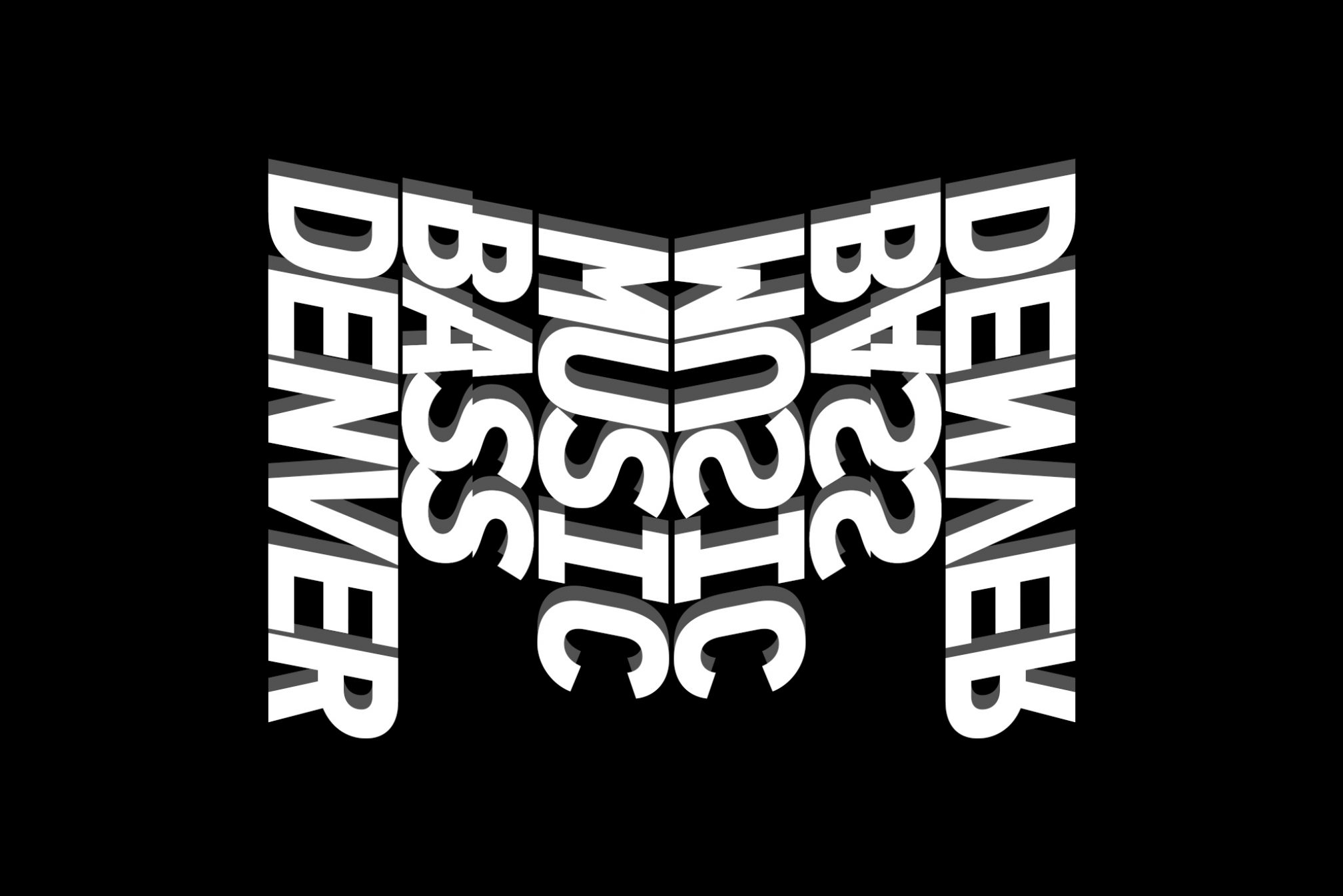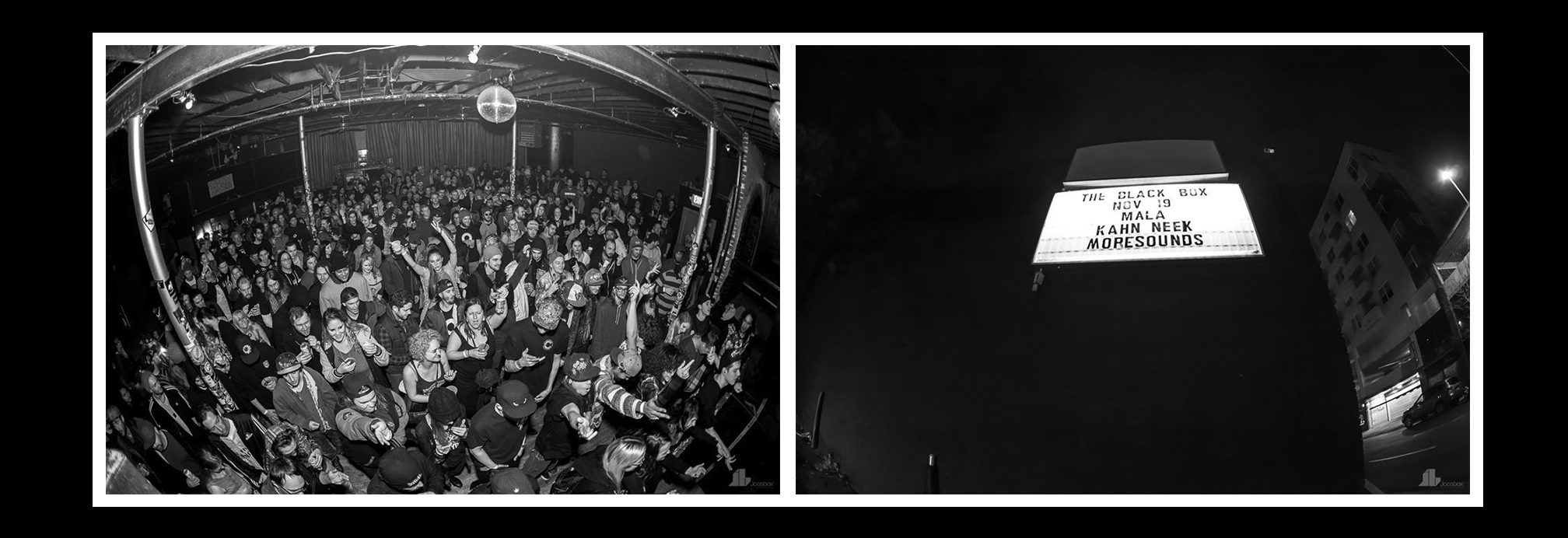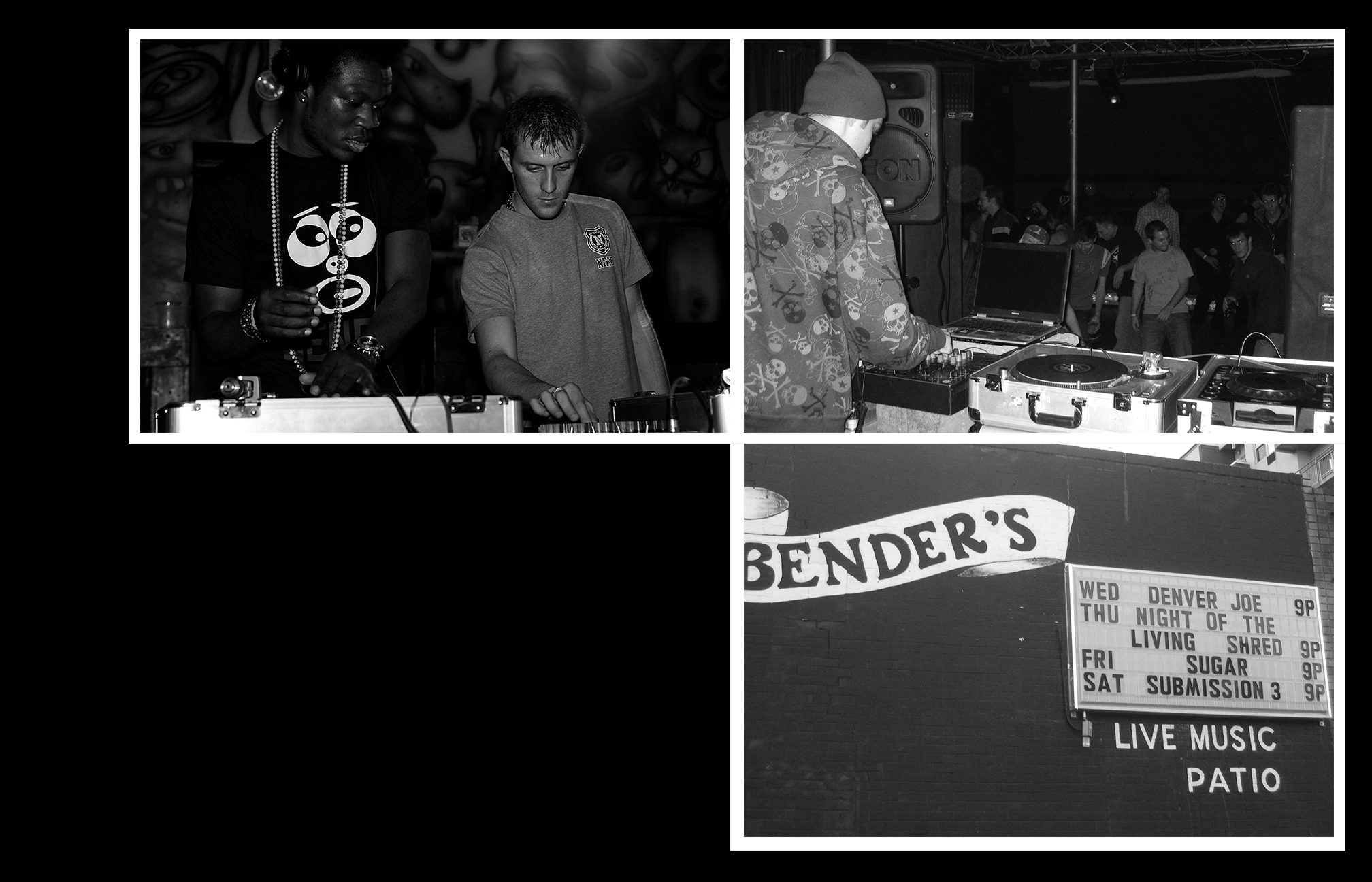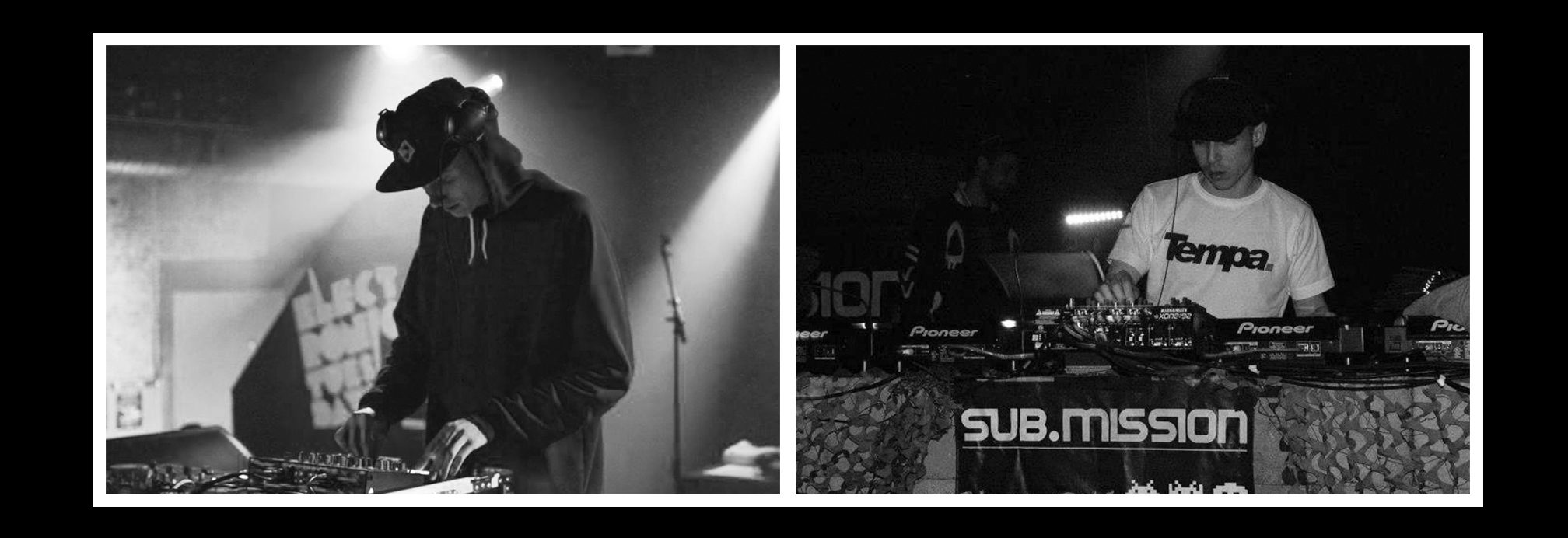 Features
Features
Denver's bass music community is the site of dubstep’s resurrection
“Moving people through sound, not hype”
It’s Tuesday night in Denver, Colorado. Here at The Black Box, a rite of passage is taking place.
Tonight’s all-locals edition of Electronic Tuesdays won’t pack out the 600-capacity sound system club like last week’s debut of Hatcha and Youngsta’s collaborative alias Bloodline, or Sepia on the Tuesday before, or Quest & Silkie before that. But the E-Tuesdays DJ battles are a ritual as engrained in the weekly event’s eight-year tradition as the “FML Wednesdays” that follow, and on the night of the winners’ battles, a comfortable crowd of Denver dubstep devotees congregates in observance.
The Black Box opened in November 2016, months before Sub.mission - the local bass music event, promotion company and agency - celebrated its tenth birthday. As one would expect from a venue owned and operated by the iconic Denver dubstep crew, it’s centerpiece is the sound system - two sound systems, in fact; one in each of the club’s two rooms, both custom engineered for this music in this space. In the main room, which fits under 400 fans, lights-out is standard lighting. From the near-pitch-darkness of the center of the dancefloor there’s nothing to distract from the music. Sub-frequencies hang in the air like fog. Here, many Denver electronic music fans have been swallowed whole.
But as the young DJ on decks launches into Toasty’s 'The Knowledge' - a tune almost as old as the artist himself - it’s clear that something even more impressive is happening here.

Today, Trisicloplox’s distorted, aesthetically disruptive take on dubstep is known throughout the international underground community; it wasn’t too long ago that the artist rose through the E-Tuesdays battles to become a Sub.mission resident DJ. “I had never given any thought to making music or DJing until I started attending Sub.mission shows. Going to those events and being surrounded by people that were so passionate about the music gave me the confidence to get into it all.”
Around the world, Denver is known for its local exports and insane number of shows featuring international dubstep headliners, but from the inside, the Denver dubstep scene is defined by a genuine dubstep community, with Sub.mission as its heart.
“I don’t know of any other weekly night that’s actually during the week and still always has such a strong turnout, and such a strong following,” says Youngsta, who’s found on the patio, partaking in Denver’s other favorite pasttime with a group of local DJs and E-Tuesdays regulars. The UK genre pioneer calls Denver his second home. “The only one I know of that went on as long as E-Tuesdays is FWD>>, and even that went to bi-weekly after awhile.”

Coming from one of dubstep’s forefathers, the comparison to the legendary London party where the genre took its form is a serious one. In a scene coping with PTSD from the commercial music explosion of 2010-12, America is still often regarded as the cold-blooded killer of the style’s underground roots. Today, Denver is non-controversially cited as a site of dubstep’s present resurrection – but on Sub.mission’s dance floors, “proper dubstep” has been alive all along.
Nicole Cacciavillano started Sub.mission in 2007, years before dubstep was a household word. While the 11 year old collective has always relied on local DJs and American artists, Sub.mission began as an extension of the sonic movement gaining momentum overseas.
“I couldn’t afford to keep going to the UK, so I had to bring what was happening in the UK here, to Denver, for me and my friends,” she recounts. “For the first few years we’d just lug a sound system to whatever venue would let us come. It was tough, because I had to set up all these meetings with venue owners and ask, ‘Can we play dubstep at your venue?’ They’d be like, ‘uh, what’s dubstep? And why do you need to bring a sound system?’”
The strength of Denver’s dubstep scene comes from its continuity. Even through the “brostep” phenomenon that spiraled into commercial EDM, Nicole stayed true to her vision of “moving people through sound, not hype.”

“Her passion matched my passion,” recalls Caspa of his first meeting with the visionary promoter. Post-brostep, Caspa stands as one of UK dubstep’s most prominent ambassadors. “[Sub.mission is] like family. In 2009 I came here for the first time, ripped my pants, played dubplates… and I’ve been back every year since then.”
The music industry has changed dramatically since the moment originators affectionately refer to as “back in the day.” Necessarily, Sub.mission has evolved with it. Today, The Black Box stands as a living monument to “proper dubstep” - retrospectively defined by Nicole as the sound “before any corporations got involved.”
“This size venue, with this many people can really make something special. Everyone’s in it for the music,” says Nicole. From inside The Black Box, her statement is self-evident. The experience is as close as it gets to legitimate time travel: the intimate space filled with familiar faces, international DJs wielding dubstep’s classic canon on wax, and conspicuous absence of lights or anything else to distract from the powerful sound system embodies dubstep’s original ethos in its purest possible form.
Although they are now established businesses, the teams behind The Black Box and Sub.mission work to preserve the integrity of the underground sound. Every day at The Black Box is an endeavor in outsmarting the commercial music industry to make space for genuine independent music. Carlos Galvan, head of marketing for Sub.mission, explains: “The promotions that I do are genuine, and are geared toward getting people through the door because once they step in, the music and the sound system will speak for itself.”

Meanwhile, nearly 1,000 miles away in Minneapolis, MN, the SubSequential crew hosts a Tuesday night dubstep party of their own. The Midwestern city is now a stop for many international artists touring through the Sub.mission booking agency. SubSequential’s home venue is a small basement selected in part for its willingness to allow the crew to bring in sound. For each event, the Dat Boy sound system migrates to Minneapolis from its remote home two hours north. Inaugural crew member and SubSequential resident DJ Kaite Watson, who performs as Aimerie, points to Sub.mission not only for enabling the night through the booking agency, but as an inspiration for the night itself.
“Going out to Sub.mission and seeing what the vibe is like in Denver gave us something to strive for,” she says. The full-circle effect reminiscent of Sub.mission’s early days isn’t lost on her. For the rest of America, it is a premonition of the underground sound’s rebirth. A new golden era for dubstep has begun.
Amye Koziel is a freelance writer based in Denver. Find her on Twitter here


